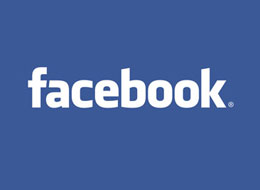I’m not a great social media junkie; I think I have a Tumblr account, somewhere. I don’t have an Instagram account or use Reddit, and whilst Blackberry Messenger is (apparently) installed and available on my Blackberry I don’t have anyone to talk to on it except charming young ladies who seem to be short of friends and clothes.
I DO, however, use Facebook extensively, and to a lesser degree Twitter.
The rules of the game for me is that Twitter is for following companies, folks I do business with, magazines, websites, etc. Anyone or anything that I’m interested in but wouldn’t necessarily want to discuss my favorite films, the weird dream I had last night, politics or religion. I.e. – contacts, colleagues and comrades.
Now Facebook is rather different – that’s family and friends and some friends of friends – on the whole people that I care about in terms of their day to day lives – their ups, downs, successes and failures. Folks who at some level or another I like or love, and who I’d happily spend time with in the pub or around the dinner table. Facebook is also where I am who I am – the unadulterated me. You’ll get me on bad days, good days, I’ll talk about cats, blog posts, state of the garden, food, my faith, and occasionally my politics. I’ll bitch about work, go ga-ga over a new TV show, share cat videos and generally project an online presence that, for better or worse, is similar to what folks get from me on a daily basis.
Facebook is, for me, the world of and according to, Joe.
Every now and again I do Facebook Purges. These may sound quite Stalinist, and I guess at one level they are. I’m getting rid of folks who no longer belong in the filtered society of my Facebook friends list. I’ve read all the articles about creating closed worlds of people that you agree with, and the problems that that can cause when interacting with wider society.
And I’m not bothered. The different view points I get from Twitter or trips to discussion boards.
Facebook is where I don’t mind my views being challenged, but I expect the challenging to be in a respectful way. Facebook is my online living room; I don’t mind intense discussions around the dinner table at home; I would object if someone came in and started ranting at me for my politics or religious views. In fact, I’d not expect such people to come and visit me at all if that was all they were going to do….they’d come over rather like the bods on the High Street with the placards proclaiming that the Second Coming is nigh and that Socialist Worker is the answer to everything.
Being a God-bothering man means that I will and I expect to get my faith questioned; I don’t proselytise too much on Facebook, and I think that most folks I know respect my views (though they may disagree with my belief in sky-pixies). My political views are quite a hotch-potch, though, and this has caused increasing amounts of friction, especially with regard to Brexit.
The automatic response of some folks that everyone who voted to leave the EU was a racist bigot was quite hurtful – I’m a leaver and can walk and breathe at the same time, don’t drag my knuckles, and don’t believe that ‘they should all go home’. I believe in giving home to genuine refugees. I also believe that we should have some degree of control of borders, and that international trade deals are not always good. And that building in a transnational super state in Europe may not be the best way to world peace.
Some folks I know have debated these issues with me and we’ve agreed to disagree. I may have moved closer to them, they may have moved closer to me. Others just called me names and I’m afraid I unfriended them.
And that was probably the kindest thing to do; unfriend on Facebook, keep on Twitter, keep contact to some degree in the ‘real world’ if necessary but avoid that risk of either person saying something that they will regret online in the heat of the moment.
At the moment another purge is in the offing; there are some folks who I rarely seem to engage with on Facebook and all I see from them are shared statements – often politics of one sort or another – or anti-faith posts of varying types. Nothing ‘original’, lots of viral stuff. It feels like having the folks with the ‘Jesus is nigh’ and ‘Socialist Worker’ placards simply turning up at your house and standing in the living room, waving the placards and shouting slogans.
No thanks.
Come and be my friend when you have something more to offer me than slogans.





 Many years ago there was a joke in techy circles that likened Microsoft to the Star Trek aliens ‘The Borg’. It appeared at the time (mid 1990s) that Microosft were indeed determined to assimilate everything they encountered and absorb the technology of other companies in to their own. Well, like the Borg in Trek, Microsoft finally found that they couldn’t assimilate everything.
Many years ago there was a joke in techy circles that likened Microsoft to the Star Trek aliens ‘The Borg’. It appeared at the time (mid 1990s) that Microosft were indeed determined to assimilate everything they encountered and absorb the technology of other companies in to their own. Well, like the Borg in Trek, Microsoft finally found that they couldn’t assimilate everything.  As anyone who’s ever heard me rant about the ‘numbers game’ side of networking – especially on sites such as Ecademy, Linked in or Facebook – will testify, I’m a great believer in quality rather than quantity, and until the software on such sites can do more for me than it currently does in terms of augmenting my memory and the cognitive abilities I apply when trying to remember ‘Is Fred interested in Mousterian Variability or is that Jill?’ then I use these sites to more conveniently keep in touch with roughly the same number of people I would via non computer based means.
As anyone who’s ever heard me rant about the ‘numbers game’ side of networking – especially on sites such as Ecademy, Linked in or Facebook – will testify, I’m a great believer in quality rather than quantity, and until the software on such sites can do more for me than it currently does in terms of augmenting my memory and the cognitive abilities I apply when trying to remember ‘Is Fred interested in Mousterian Variability or is that Jill?’ then I use these sites to more conveniently keep in touch with roughly the same number of people I would via non computer based means. I’ll admit it. Deep within me is a snob. As far as I’m concerned, the online world started heading down hill when you no longer had to know how to install a full TCP/IP stack to use the Internet. Most online discussion forums should, in my opinion, have an intelligence test before you’re allowed to post on them – basically the ability, for an English language website, to string together English sentences without text speech or foul language is a good starting point. OK…where was I….oh yes.
I’ll admit it. Deep within me is a snob. As far as I’m concerned, the online world started heading down hill when you no longer had to know how to install a full TCP/IP stack to use the Internet. Most online discussion forums should, in my opinion, have an intelligence test before you’re allowed to post on them – basically the ability, for an English language website, to string together English sentences without text speech or foul language is a good starting point. OK…where was I….oh yes.  I’m old enough to have used an address book and still have a Rolodex on the phone table. When I actually sit down and think about the people with whom I have reasonably regular ‘quality’ contact in a 3 month period, either electronically or face to face, it probably amounts to no more than a hundred or so. I guess it’s safe to say that in the world of networking I’m a ‘quality over quantity’ sort of fellow. I’ve never been a great collector of large numbers of business cards or people details – collections are fine for stamps, coins and locomotive numbers but are kind of creepy for people. 🙂
I’m old enough to have used an address book and still have a Rolodex on the phone table. When I actually sit down and think about the people with whom I have reasonably regular ‘quality’ contact in a 3 month period, either electronically or face to face, it probably amounts to no more than a hundred or so. I guess it’s safe to say that in the world of networking I’m a ‘quality over quantity’ sort of fellow. I’ve never been a great collector of large numbers of business cards or people details – collections are fine for stamps, coins and locomotive numbers but are kind of creepy for people. 🙂